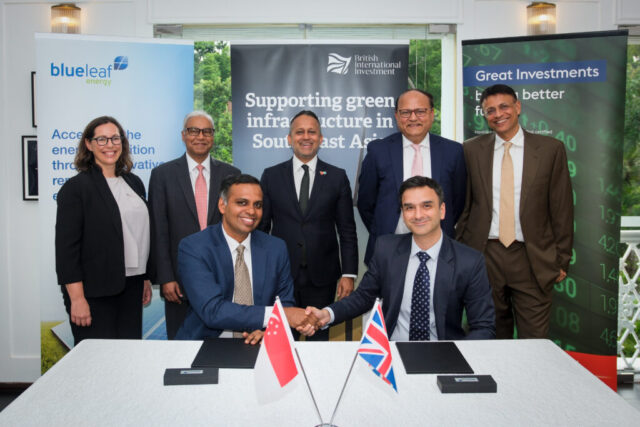Nuveen’s head of private equity impact talks to Impact Investor about what limited partners are looking for in the impact space, trends and themes that are shaping private equity, and future innovations in private capital and impact.

Rekha Unnithan is managing director and global head of private equity impact investing at Nuveen. She serves on the advisory board of the Operating Principles for Impact Management and as chair of the Global Private Capital Association’s Impact Council. She is also a board member on several current portfolio companies to help drive strategy and performance. Nuveen manages $1.3trn (€1.1bn) in public and private assets for clients around the world and on behalf of TIAA, its parent company – one of the world’s largest institutional investors. It says it has deployed roughly $27.6bn in strategies that deliver measurable social and environmental benefits to people, communities, and the planet.
Maha Khan Phillips (MKP): How much limited partner demand is there for impact strategies in private equity right now and what is driving that demand?

Rekha Unnithan (RU): Limited partner (LP) demand for impact strategies in private equity remains robust. Despite macroeconomic headwinds and political uncertainties, many institutional investors are doubling down on their commitments to impact investing. However, LPs are becoming more discerning in their general partner selection. There’s an increased emphasis on rigorous impact measurement, track record, and value creation approaches. Additionally, geopolitical shifts and turbulence in the United States are prompting LPs in the near term to diversify their geographic exposures.
There’s an increased emphasis on rigorous impact measurement, track record, and value creation approaches.
MKP: What sectors and geographies are of most interest to Nuveen at the moment, and why?
RU: Nuveen is strategically focusing on sectors and geographies that offer good relative value and support an inclusive transition to a low carbon economy. We continue to explore asset light businesses with solutions that generate both cost savings, and impact in the form of emissions reduction, waste reduction, or affordability. We believe there are many undervalued assets and interesting investment opportunities in the US growth equity space.
MKP: What are the most promising innovations-and risks- at the intersection of private capital in real-world problem solving?
RU: The development of standardised methodologies and frameworks for impact measurement have helped accelerate the impact investment ecosystem. However, the current political and economic turbulence has decreased appetite for new commitments into impact investments, particularly from LPs in the US.
We believe there are many undervalued assets and interesting investment opportunities in the US growth equity space.
MKP: What does impact due diligence look like at Nuveen? How integrated is it with financial due diligence?
RU: Over the course of more than a decade, we have developed a dedicated ESG and impact management process that ensures that social and environmental considerations are integrated throughout the entire investment process from deal screening, to approval, portfolio engagement, and exit. A fund-level framework governs the types of impacts we seek to achieve as part of driving an inclusive transition to a low-carbon economy, the minimum ESG and impact performance thresholds, and the practices we engage in to ensure that these are met.
MKP: What has changed most in the past five years and what changes do you see for private equity impact in the future?
RU: We have seen a mainstreaming of impact investing, where strategies have transitioned from niche and nascent, to conventional and established. As the market matures, impact managers are beyond first funds, have longer track records, proven exits, and enhanced impact management practices. Looking forward I hope to continue [to see] increased deal flow as sustainable businesses mature, and increased allocations into dedicated impact pools from institutional investors.
We have seen a mainstreaming of impact investing, where strategies have transitioned from niche and nascent, to conventional and established
MKP: If you could change one thing about how private equity approaches impact, what would it be?
RU: I would change the perception among some traditional investors that impact equals concessionary returns. That mindset is increasingly misaligned with market realities. Changing this perception means continuing to prove that you don’t have to trade performance for purpose, you can “do well by doing good”.





